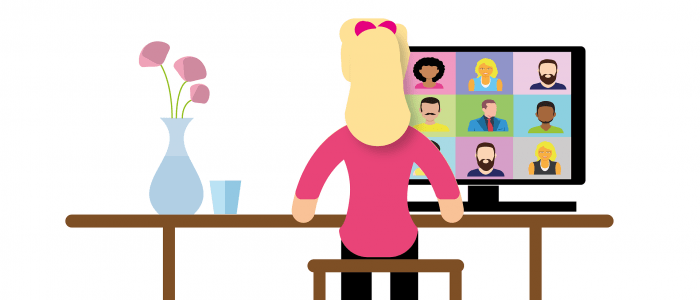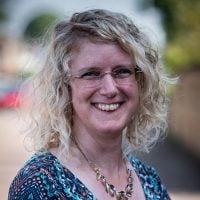“You just do it online” – The challenge of digital exclusion and COVID-19

COVID-19 has placed a spotlight on the huge level of digital inequality that exists in the UK. As school work, social events, religious services, information sharing, work meetings, application processes for reporting problems and applying for support move necessarily online, significant sections of society remain excluded. The government estimates there are about one million children, for example, who are unable to access education online.
The Creative English staff and volunteers are acutely aware of these challenges. In a survey of our volunteers across the UK, 100% of respondents considered access to technology as a significant barrier they were facing. For 53%, it was the lack of devices that were the biggest problem. With one mobile phone per household as the only point of internet access, it can be a huge challenge for it to be shared between children trying to access the schoolwork that’s been set. 20% of volunteers considered a lack of data to be the biggest issue. Even when you have devices, it doesn’t mean you have the data to use them. “I’d love to join in with classes,” one learner explained, “but it’s not possible. I don’t have enough data for my son’s schoolwork as it is.” The free Wi-Fi in libraries, cafés, community centres and other public buildings plays a crucial role in plugging this gap when these buildings are open; while they’re shut, it excludes huge numbers from access to information and support. 27% of respondents considered lack of IT skills and ability to access programmes, like Zoom, as the biggest barrier. This particularly applied to groups who worked with older people. If there is no one in your household who can help, the barriers to accessing online provision can seem insurmountable. With so many of us so easily able to access the online world, it is easy to forget that this isn’t the norm for many families.
While the financial barriers to online access can be huge, there are also psychological barriers around online access to be overcome for some members of our communities, as well as practical ones. These barriers are invisible behind statistics, such as 93% of the population having internet access. My mother, for example, has a basic broadband package with the phone line to her home. She has done computer courses in the past but, uneasy about internet safety, she hasn’t used it. As a consequence, she had completely forgotten how to get onto the internet and had become really frightened of it. It took weeks of careful phone coaching throughout lockdown to build up the confidence to access a family video call via Messenger. Even though she’s done that, it was quite stressful enough, and she’s still fearful of trying anything further. As a normally active elderly person living alone, her church, her art group and her drama group were all available online throughout lockdown, but her fear of the technology means she’s still unable to access that support and connection. Another elderly friend, who was self-isolating alone, told me how she had cried after joining her church’s Zoom service via a phone link: “I was so upset because I could hear their voices but I couldn’t see them and I didn’t know what was going on. I felt so alone after it. It was so much worse. I couldn’t stop crying.” She owns a computer but, again, she is too afraid to use it.
The great thing, however, about working with faith groups is that we don’t just stop at the problem. As well becoming more aware of these issues, faith and community groups have been at the forefront of finding solutions to meet this need. From individuals patiently offering phone support or appropriately protected, socially-distanced computer setup for the most vulnerable; from organisations offering devices they no longer need after a switch to home working, to creative approaches to providing food and other support to enable the family to have more disposable income to spend on data; from volunteers using their skills in other languages to provide guides on how to access Zoom, to others who have faithfully phoned those who are not able or willing to access digital provision.
The COVID-19 crisis has accelerated the switch online across various services, and it certainly seems unlikely to just switch back in the foreseeable future, if at all. As people of faith, we’ll need to continue to be mindful of these challenges and how we can best create sustainable solutions for all in a digital world.



